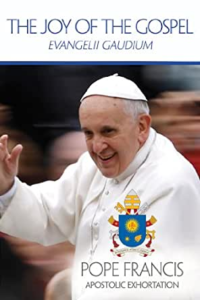Co-missioners,
Twelve and a half years ago a number of us had the great privilege and equal pleasure of meeting a young Finnish expatriate named Jukka Kaariainen. He was one of three keynoters at our 2010 Crossings Conference, having been recommended for that role by Ed Schroeder. Raised in China by Finnish missionaries, Jukka at the time was a recent graduate of Concordia Seminary, St. Louis, now working on a doctorate in systematic theology at Fordham University. The mission of the Church was his particular interest and the topic of his dissertation. His conference address tackled the question of how to think about mission from a distinctly Lutheran point of view. To say that he hit a home run is an understatement. Follow this link to see for yourselves.
Jukka has stayed in touch with Crossings in the years since, for which we thank the God who, as Jukka put it one of his notes to us, has been guiding him and his family in mysterious ways. On completing his doctorate he took a job teaching theology at China Lutheran Seminary in Taipei. Six years later the Evangelical Lutheran Church of Finland offered him a position as mission theologian in their national office. This drew him to settle in his native land for the first time in his life. He presently serves as Executive Director of an official church agency called Finnish Lutheran Overseas Mission—FLOM, for short.
Last fall Jukka drafted a revised mission strategy for FLOM. He was kind enough to share it with a few of us in early May. We found it so refreshing that we can’t help but share it with all of you via Thursday Theology. Yes, you can find the full text on the FLOM website, but we’d hate for you to miss it by not going there.
By the way, Jukka also invited us to comment on the strategy. We’ll do that in coming weeks. That’s another reason for reading closely today.
Peace and Joy,
The Crossings Community
__________________________________________________________________
The Joy of the Gospel Inspires
Guidelines for the Finnish Lutheran Overseas Mission’s Strategy in the Pandemic Age
Approved by the FLOM Board of Directors, December 1, 2021
by Jukka Kääriäinen
Translated from the Finnish
Introduction
The world and mission arena are changing rapidly and unpredictably. It is impossible to know exactly what kind of environment we will be operating in a few years from now. That is why we deemed it wise to craft an open-ended strategy for the Finnish Lutheran Overseas Mission (FLOM), one which is not bound to a fixed time period. FLOM’s board will conduct a phenomenon-based evaluation of this strategy at least every two years. We aim to respond both flexibly and quickly to unforeseen challenges and new opportunities for mission. We trust that, as we remain faithful to the Lord of mission, these strategic guidelines will stand the test of time and be adaptable to changing contexts.
The Christian’s basic calling, both in Finland and globally, is to bear witness to Jesus Christ as the world’s Savior and Redeemer. The result of dwindling personnel and financial resources in Lutheran congregations will inevitably lead to a vicious cycle: at a time when the Church’s need to bear witness to a secular world is growing, its capacity to equip members for this witnessing task will simultaneously weaken. FLOM has both the resources and desire to support and equip congregations and Christian communities for carrying out this calling. As experts, we have been engaged in this ministry for nearly fifty years, both globally and in Finland.
FLOM’s doctrinal statement [1] and guiding principle [2] provide a solid foundation for this strategy. In this strategy, we aim to articulate a theologically robust, clear, and compelling vision for strategic guidelines to direct our work. We see that the way FLOM’s founding fathers expressed mission, such as “Mission is a thankful response to Golgotha,” finds a new, contemporary form in this strategy. This strategy is structured in three parts, answering three questions: why (the basis of our mission), how (our mission’s identity and values), and what (the strategic emphases of our mission).
The “Why” of Mission: Gospel Joy as a Basis for Mission Strategy
FLOM’s mandate is to further the reign of God among the nations, according to Jesus’ Great Commission, particularly in regions where Christian community and witness are small or non-existent. Our mandate expresses the heart of the Evangelical Lutheran Church of Finland’s strategy until 2026, Open Doors, which states, “The Church’s basic task, mission, is to further the kingdom of God and proclaim Jesus Christ as the Savior of the world.” We are committed to the Church’s basic policy on mission, Common Witness, and focus especially on implementing its central principles: “The church and its mission agencies…proclaim the Gospel and communicate it in various ways, especially there where Christ is not yet known” (p. 8). “Holistic mission includes justice, human dignity, equality, and advocacy for fundamental rights” (p. 8). Our mandate also connects with the World Council of Churches’ 2022 general assembly theme, “Christ’s Love Moves the World to Reconciliation and Unity.”
The basis for many mission strategies seems to be the Great Commission (Matt. 28:18-20), mission as the work of the triune God (missio Dei), or holistic mission. FLOM resonates with these themes of the ecumenical, global Church. However, we interpret and apply these broad themes through the lens of gospel joy. From our perspective, when it comes to the individual Christian’s life, global mission history, or contemporary missional challenges, gospel-based joy is an essential resource and guidepost for mission. With St. Paul, we are not ashamed of the gospel as the saving power of God (Rom. 1:16), [3] but rather we view it also as an empowering source of joy.
Why joy as the basis for a mission agency’s strategy? At least for the following reasons:
The reign of God, the gospel, and joy
- Joyful, good news constitutes the essence of the gospel (euangelium).
- Joy captures both the nature of the reign of God (Rom. 14:17 [4]) as well as its inestimable worth (Matt. 13:44 [5]).
- The gift of salvation leads to exuberant joy as the climax of faith, hope, and love (I Pet. 1:8-9 [6]).
- The world is inevitably headed toward joy. The reign of God will culminate in the joy of the marriage feast of the Lamb (Rev. 19: 7 [7]).
Jesus Christ and joy
- Jesus’ entire life and ministry aimed at the joy the work of salvation would bring (Heb. 12:2 [8]). From this perspective, the divine work of salvation can be interpreted as the pursuit of joy. The three parables in Lk. 15 (the lost sheep, the lost coin, and the son alienated from the father’s heart) link the joy of finding the lost to salvation. Since FLOM’s mandate is the reach the unreached, we easily resonate with the joy of finding salvation expressed here.
- The bodily resurrection of Christ ignited a lasting joy. This joy propelled the earliest disciples into mission and continues to energize Christian mission (John 16:22 [9]).
The Christian life and joy
- Joy is God’s will for all Christians, regardless of circumstances (Phil. 4:4 [10]). Already in the Old Testament, the one trusting in God is exhorted to rejoice in and on account of the Lord.
- Joy is a natural result of believing in Christ (Acts 16:34 [11]).
- Joy flows naturally from the Christian’s life of prayer (John 16:24 [12]).
- The disciples’ genuine encounter with Jesus ignites joy and enthusiasm (Lk. 24:32 [13]).
The Holy Spirit and joy
- Joy is the gift and fruit of the Holy Spirit (Gal 5:22 [14], Acts 13:48 [15]), an invitation into the shared life of the triune God. [16]
- The Holy Spirit is a Spirit of joy, joy accompanies His coming (Acts 13:52 [17]).
Suffering and joy
- Joy and suffering belong together, both in the life of Christ and in His followers’ lives (I Thess. 1:6 [18]). A mark of genuine Christian faith, throughout the ages, has been the ability to rejoice in the midst of deep suffering (Acts 5:41 [19]).
- On the other hand, we recognize the burden of human suffering and how the easing or removal of it, e.g. through development work, brings joy. Joy is not reducible to merely a spiritual reality. To do so is to oversimplify and neglect the concrete needs of this world.
Joy as an ecumenical emphasis
- Pope Francis states, “The joy of the gospel fills the hearts and lives of all who encounter Jesus.” [20] We agree with this wholeheartedly.
In mission and Christian life overall, the joy of the gospel lives and grows primarily alongside its opposite, grief and suffering. We see this most clearly in the example of Jesus’ life of suffering, as well as in the parable of the woman giving birth (John 16: 21-22 [21]). [22] Since we rejoice in the fact that in His great mercy, God the Father “has given us a new birth into a living hope through the resurrection of Jesus Christ from the dead” (I Pet. 1:3), we commit to share this gospel joy in a manner which recognizes and is sensitive to the reality of suffering.
The “How” of Mission: Our Identity and Core Values
The gospel gives rise to a unique identity. Such an identity is marked by a joyful, servant spirit, rather than arrogance and exclusion. It is not used to support one’s being in the right or to put down those who think differently. In line with its identity, FLOM seeks to use its resources and gifts both wisely and faithfully, for the advancement of God’s reign and the benefit of our neighbors.
FLOM is a Finnish, Lutheran mission agency. We are an official mission agency of the Evangelical Lutheran Church of Finland. We are Christians, united around God’s mission. The joy of the gospel frees us to share treasures from our Lutheran tradition: Christ alone, grace alone, faith alone, God’s Word alone. In line with the Augsburg Confession, we emphasize that unity in the gospel is a sufficient basis (satis est), not only for the true unity of Christ’s Church, but also for unity and cooperation in God’s mission.
FLOM is a mission agency. We are not a revival movement, congregation, spiritual services provider, or a political advocacy organization. We evaluate all our operations, partnerships, and official positions using the criteria of mission. We ask: How does this relate to mission? Is our participation, or the need to take a stance, justified or necessary, for the sake of mission? FLOM’s existence is not a self-evident, absolute value. We exist in service to, and for the sake of, furthering God’s reign, as long as the Lord of mission has use for us.
Our Identity
- We value our relationship with and official position in the Lutheran church.
- We are “hospitably Lutheran,” rather than confessionally exclusionary.
- The terms “gospel of Christ,” “reign of God,” and “mission” are central to our self-understanding.
- We are pietistic, but not legalistic.
- We seek to know both Christ and the benefits of the gospel more deeply. We are prepared to suffer for Christ’s sake and with His followers.
- We represent and practice classical mission theology. This means we emphasize salvation history, Christianity as a salvation religion, the theology of the cross, and the proper distinction between law and gospel.
- We trust in the Holy Spirit and use spiritual gifts.
Our Values
Biblical and Spiritual Values
- We are courageously spiritual. A spirit of prayer and the spiritual use of Scripture support missional living in Finland and mission work globally.
- We emphasize the call to mission and missional living. Missional living is not reducible to the inner call to mission, missionary service, or missionary life. Every Christian is called to missional living, even if he/she does not have a special call to missionary service overseas.
- Sending of missionaries: God did not save the world from a distance, but rather through the incarnation of Jesus in the flesh. In Christ, God drew near and became one of us. Because Christ lives in and works through us, FLOM is a missionary sending agency. We send people to serve amongst people.
- We gather around mission as the primary thing. We do not bind consciences with secondary matters.
- We cherish the significance and value of Christianity’s Jewish roots for mission theology and praxis today.
Operational and Work Community Values
- Faithfully to the mission task, transparently and in a manner which elicits trust
- With an ability and desire for cooperation and collaboration
- Interactively within our communication culture and planning processes, also between our four units (mission, networking and partnerships, research and training, and administration/ financial).
- Sustainably from a work well-being perspective. Aiming for sustainable results.
- Employing flexible structures
- Creatively and innovatively
Assessment Values
- The impact, efficacy, of mission is grounded in faithfulness to the gospel. Such impact also utilizes principles such as strategic thinking, sustainability, capacity-building, advocating for structural change, catalytic, and multiplication.
- In assessment and planning, we value and utilize the perspectives of national partners, mission research and field work, and specialists (such as ex-missionaries).
The “What” of Mission: Our Strategic Emphases
In Finland
- We discern, gather, train, mentor, equip, and raise up the next generation of mission movers and leaders, including development work leaders.
- We offer tools for supporting and strengthening missional living and discipleship in Christian communities, congregations, dioceses, utilizing our partnerships and networks.
- We seek to be a mission channel for all Finns, including migrants/immigrants, especially new converts. We assess the compatibility of missionary candidates’ inner mission call with FLOM’s strategy, forms of mission, mission fields, and operating principles.
- We are a well-respected, well-known actor in the international development arena.
- We translate mission theology and missiology into an understandable, contextual form for younger generations.
Globally
- We strengthen partnerships between global south partners in the global south “zone.”
- We operate especially in nations where Christian witness and life is restricted.
- We operate, as much as possible, through our partnerships and networks. We seek to avoid establishing our own offices overseas or founding sister organizations.
- We emphasize and invest in multiform, multileveled theological education, in order to equip local leaders in Christian communities.
- We equip local Christians for evangelistic work and ministry.
- We invest in establishing new Christian communities, with local leadership, with the goal of planting new, Christian congregations.
- We strengthen our development work capacity and operate with a high degree of excellence in advancing equality, justice, and basic rights.
- We accompany suffering people and persecuted Christians. A prime example of this is our multifaceted, holistic refugee ministry in southern Europe.
Conclusion
According to statistics, Finland is the happiest nation in the world. [23] Despite numerous positive, societal and global developments, there seems to be a dire lack of joy, not only in Finland, but also globally. Jesus’ eternal words address this pain, both directly and prophetically: “I have said these things to you so that my joy may be in you, and that your joy may be complete” (John 15:11). What are “these things”? The gospel concerning God’s loving mercy toward the disciples and the entire world. In his farewell speech to his disciples, Jesus emphasized joy as a source of strength in the lives of his followers: “Very truly, I tell you, you will weep and mourn, but the world will rejoice; you will have pain, but your pain will turn into joy. So you have pain now; but I will see you again, and your hearts will rejoice, and no one will take your joy from you” (John 16:20, 22).
Since God justifies the sinner and acts justly, we rejoice in the opportunities given us both to declare the forgiveness of sins and to work for a more just, equitable world. [24] Proclamation and service are both sources of joy for the recipients of mission, both belong within holistic mission, since both are important to God Himself.
In this strategy, we have articulated eight aspects of our identity as a mission agency, listed thirteen values, and identified thirteen strategic emphases. While the mission of both the Evangelical Lutheran Church of Finland and the global Church is wildly diverse, in the final analysis there is only one mission, the mission of God (missio Dei). Therefore, the most significant number for mission is one. As St. Paul declares: “There is one body and one Spirit, just as you were called to one hope when you were called; one Lord, one faith, one baptism” (Eph. 4:4-5). “[Since] there is also one mediator between God and humankind, Christ Jesus” (I Tim. 2:5), “so we are ambassadors for Christ, since God is making his appeal through us; we entreat you on behalf of Christ, be reconciled to God” (2 Cor. 5:20). This vocation as ambassadors of reconciliation is indispensable to FLOM’s identity. The cross and resurrection give rise to hope and joy. The joy of the gospel inspires us!
Endnotes
[1] Our doctrinal statement can be found on our homepage: www.kylvaja.fi/info [2] FLOM is an official mission agency of the Evangelical Lutheran Church of Finland. We are committed to the Bible as the authoritative Word of God. We send missionaries to further the reign of God, especially among unreached people groups and areas where the Christian presence is small or non-existent. We invite Christians to shoulder their responsibility for the mission our Lord gave His Church. We are committed to holistic mission, which includes both Gospel proclamation and diaconal service aimed at improving the conditions of societies. Such service aims at sustainable development. [3] “For I am not ashamed of the gospel; it is the power of God for salvation to everyone who has faith, to the Jew first and also to the Greek.” [4] “For the kingdom of God is not food and drink, but righteousness and peace and joy in the Holy Spirit.” [5] “The kingdom of heaven is like treasure hidden in a field, which someone found and hid; then in his joy he goes and sells all that he has and buys that field.” [6] “Although you have not seen him, you love him; and even though you do not see him now, you believe in him and rejoice with an indescribable and glorious joy, for you are receiving the outcome of your faith, the salvation of your souls.” [7] “Let us rejoice and exult and give him the glory, for the marriage of the Lamb has come, and his bride has made herself ready.” [8] “[Jesus], who for the sake of the joy that was set before him endured the cross, disregarding its shame, and has taken his seat at the right hand of the throne of God.” [9] “So you have pain now; but I will see you again, and your hearts will rejoice, and no one will take your joy from you.” [10] “Rejoice in the Lord always; again I will say, Rejoice!” [11] “… and he and his entire household rejoiced that he had become a believer in God.” [12] “Until now you have not asked for anything in my name. Ask and you will receive, so that your joy may be complete.” [13] “They said to each other, ‘Were not our hearts burning within us while he was talking to us on the road, while he was opening the scriptures to us?’” [14] “The fruit of the Spirit is love, joy, peace, patience, kindness, generosity, faithfulness…” [15] “When the Gentiles heard this, they were glad and praised the word of the Lord; and as many as had been destined for eternal life became believers.” [16] Theologians use the term perichoresis to convey this reality. From all eternity, the triune God—Father, Son, and Holy Spirit—have rejoiced in, glorified, loved, and served one another. [17] “And the disciples were filled with joy and with the Holy Spirit.” [18] “And you became imitators of us and of the Lord, for in spite of persecution you received the word with joy inspired by the Holy Spirit…” [19] “As they left the council, the apostles rejoiced that they were considered worthy to suffer dishonor for the sake of the name. [20] Pope Francis, The Joy of the Gospel: Evangelii Gaudium (Veritas Publications: Dublin, 2013), 1. Already in 1965 the Roman Catholic Vatican II document, Gaudium et Spes (Joy and Hope), used joy to characterize the encounter between the Christian Church and the world. [21] “When a woman is in labor, she has pain, because her hour has come. But when her child is born, she no longer remembers the anguish because of the joy of having brought a human being into the world. So you have pain now; but I will see you again, and your hearts will rejoice, and no one will take your joy from you.” [22] Both the trajectory of Jesus’ life, as well as the parable of the woman in labor, illuminate three important aspects of the gospel of joy: 1) Its coming is certain. Similar to the certainty of the birth of a child, and its subsequent joy, likewise, the coming of gospel joy is a certainty we can count on. Joy is born, it’s on its way, one can trust in the promise of its arrival. 2) Gospel joy does not eliminate, or exclude, suffering. Rather, similar to the new mother, the Christian believer “no longer concentrates on his pain.” The magnitude of joy is such that its presence pushes suffering to the background. Both joy and suffering, however, continue to coexist. 3) In accordance with the clear, Scriptural teaching on salvation, in this parable, typologically, Jesus Christ Himself is the “ultimate” woman in labor. He has done, endured, and suffered everything that is necessary for our salvation, in order to secure the joy of our salvation. [23] United Nations Development Program, World Happiness Report 2021, www.worldhappiness.report. [24] The Greek term dikaiosune (Hebrew sedaqah) is a rich term, conveying both God’s nature as righteous, the one who declares and makes sinners just, as well as His character as just. Both the Greek term, and its Hebrew equivalent, contain both aspects of holistic mission: Gospel proclamation and loving service.
Thursday Theology: that the benefits of Christ be put to use
A publication of the Crossings Community







You must be logged in to post a comment.